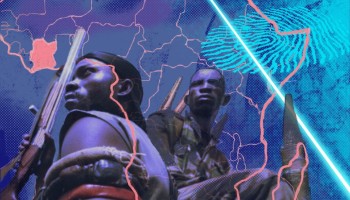In a statement, the ruling Democratic Party of Socialists (DPS) said it had unanimously decided to appoint Djukanovic’s hand-picked successor, deputy prime minister Dusko Markovic, as the next prime minister, pending negotiations with minor parties in the wake of elections on Oct. 16. Djukanovic will remain the head of the party.
Markovic, a former state security chief, is considered one of Djukanovic’s closest confidantes. He was publicly accused by a former head of the country’s anti-organized crime police last year of involvement in cigarette smuggling, but was never charged.
Opposition politicians and civil society groups said Djukanovic’s resignation would change very little, with the party leader continuing to wield significant power behind the scenes.
“We have witnessed Djukanovic doing similar maneuvers before,” said Dejan Milovac, the director of the Network for Affirmation of the NGO Sector (MANS), an OCCRP partner.
In 2010, Djukanovic stepped aside while Igor Luksic served as prime minister for two years. Then, too, Luksic was seen as a proxy of Djukanovic, Milovac said.
The DPS won the largest share of votes in elections held earlier this month, but failed to secure an outright majority. Instead, the party will have to govern with the support of minor parties representing ethnic minorities.
Djukanovic campaigned in the latest election on a platform that included closer alignment with the European Union and NATO, and accused his rivals of leaning toward Russia.
The run-up to the election was marred by the arrest of 20 Serbian citizens who were accused of plotting an armed attack on polling day. Serbia this week also arrested several people in connection with the alleged plot.
Djukanovic became prime minister of Montenegro, then part of Yugoslavia, in 1991 at the age of 29. He has ruled the country as either president or prime minister for most of the intervening period.
OCCRP has reported extensively on corruption by Djukanovic, with investigations tying him and his family to millions in hidden wealth, the use of government money for personal benefit, and ties to organized crime.






